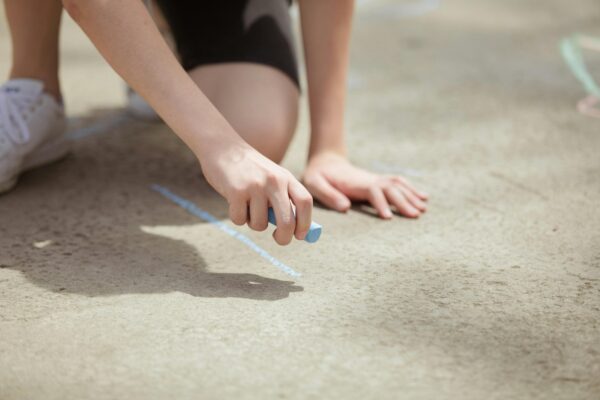While we’re busy enjoying the fun and sun of summer, the school year may feel far behind. But academic progress shouldn’t pause just because classes do.
By the time August rolls around, many students have already begun to lose ground in key areas like reading, writing, and math. This learning loss is known as the “summer slide.” Research shows that students can lose up to two months of math skills and around 20% of reading gains over the summer.
The good news? It’s not too late to make the most of the second half of summer. A mid-summer academic check-in can help families spot gaps, create attainable goals, and take small, practical steps that will make a big difference in September.
Here are some simple tips to assess your child’s skills and encourage summer learning in a positive way:
Ages 6-8: Make Learning Part of Play
For children ages 6-8, fun and engaging activities are key to building confidence, sparking curiosity, and developing foundational skills for independence.
- Check-in: Can your child confidently count by 2s, 5s, and 10s? Are they reading out loud with expression and understanding?
- Try: Practice basic math facts through games like hopscotch math or math bingo. Read picture books aloud daily and ask simple questions about the story. Use sidewalk chalk to spell words or draw shapes outside.
Ages 9-12: Encourage Independence
Students in this age range are ready for more responsibility, though they still benefit from guidance.
- Check-in: Are they finishing chapter books and understanding key details? Can they solve multi-step math problems independently?
- Try: Create a simple reading challenge with a variety of book genres. Practice multiplication, division, and fractions through real-life situations like cooking or budgeting. Have them write a weekly journal entry or review of something they read or watched.
Ages 13-15: Focus on Skills, Not Just Content
In the early teenage years, students benefit from reinforcing key learning strategies during the summer.
- Check-in: Are they reading daily and practicing structured writing? Are they reviewing math concepts from the previous grade?
- Try: Encourage reading a mix of fiction and nonfiction. Use writing prompts that invite them to reflect or take a position on a topic. Use math apps or summer workbooks to review essential skills and build confidence before the next school year.
Ages 16+: Preparation with Purpose
For high schoolers, summer is a great time to target areas that affect grades, confidence, and future readiness.
- Check-in: Do they feel prepared for next year’s subjects? Are they taking time to review, plan ahead, or improve their study habits?
- Try: Assign one or two academic goals for the remainder of the summer. This might include reviewing a challenging subject, completing a novel, preparing for standardized tests, or organizing class notes from the previous grade. A tutor or study group can also provide valuable structure and accountability.
Final Thoughts
Summer learning doesn’t have to be rigid or overwhelming. A few hours a week of purposeful practice can help your child retain what they’ve learned and start the new school year with confidence. Whether it’s reading before bed, playing math games, or working with a tutor, now is a great time to check in, re-engage, and set your child up for a strong September.
As summer break reaches its halfway point, this is an ideal moment for families to pause and reflect on how their children are staying connected to learning. With the first day of school still several weeks away, there’s plenty of time to reinforce key skills, spark curiosity, and ease back into academic routines. A simple mid-summer check-in can help students feel more confident and prepared for the school year ahead.
